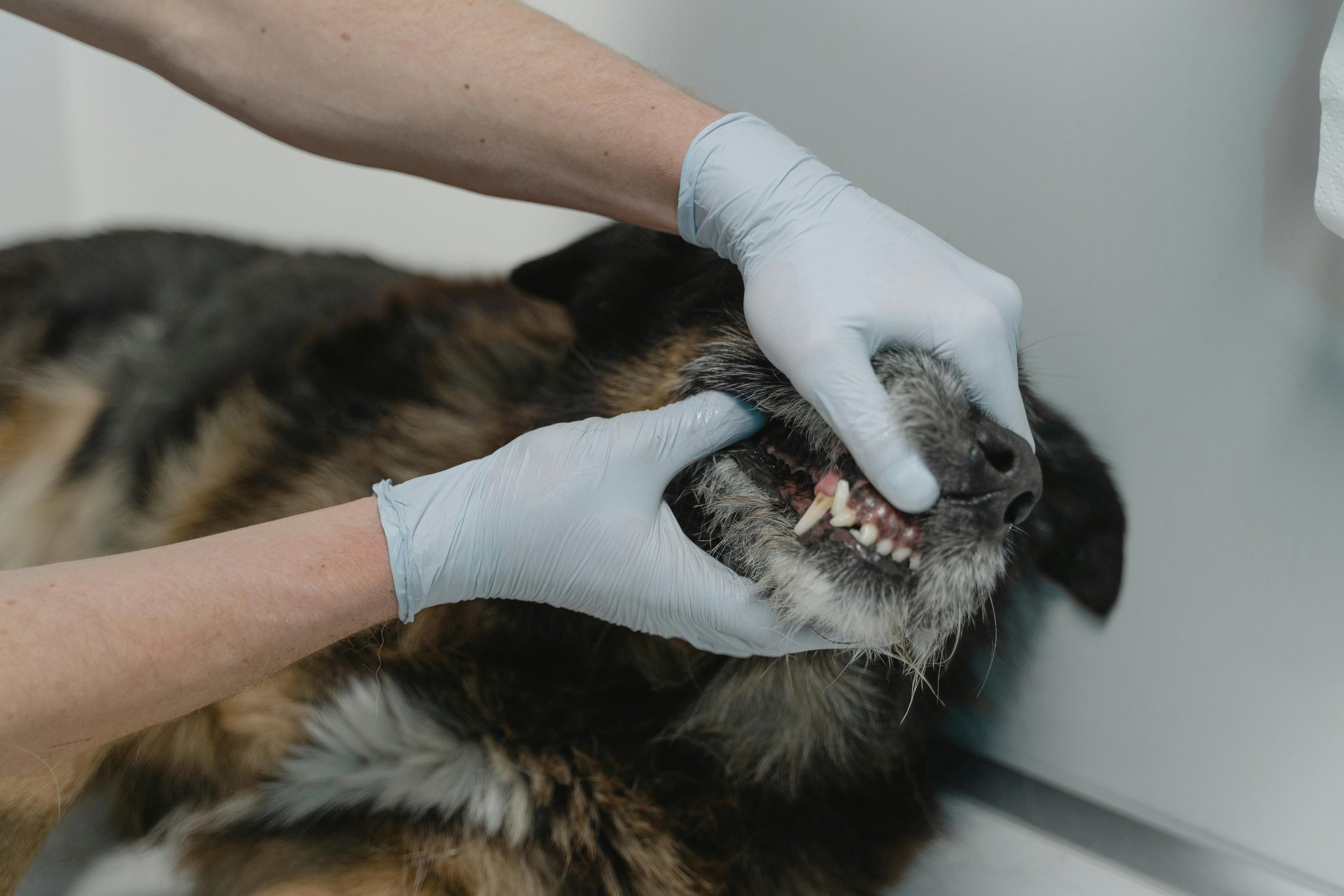9 Signs Your Pet Needs Emergency Care — And What to Do Next
Should I Take My Pet to the ER?
It can be hard to know when your pet’s condition can wait for a regular vet visit — and when it’s a true emergency. At Fair Oaks Pet Hospital, we want to help you feel more confident in making that call. Below are 9 signs that may indicate your pet needs emergency care. For each, we’ve included tips to help you decide if your regular veterinarian (like us!) can help, or if you should go straight to a 24-hour emergency hospital.
Gum color should be pink like this
1. Difficulty Breathing
This is always a medical emergency. Pets who are breathing fast, struggling for air, or showing signs of respiratory distress need to be seen immediately.
Check at Home:
Respiratory rate: Count your pet’s breathing rate. To do this, count how many times your pet's chest expands per minute. When your pet is resting, this number should be no higher than 40.
Gum color: Gums that are pale, gray, or blue indicate poor oxygenation.
2. Persistent or Uncontrollable Vomiting
While a single episode of vomiting can be monitored, repeated vomiting over a short time — or vomiting multiple days per week — can be serious.
Especially urgent if your pet is lethargic, not eating, or has a history of eating non-food items.
Repeated vomiting may indicate an obstruction or systemic illness that needs prompt evaluation.
3. Collapse or Sudden Weakness
Sudden collapse or inability to stand or move normally can be caused by heart disease, toxins, or internal bleeding.
Check at home:
Respiratory rate
Gum color
If your pet is unresponsive, this is an emergency. These pets should go directly to an ER.
4. Dog Bite Wounds or Other Trauma
Even small puncture wounds from a bite can hide serious tissue damage or infection.
Bite wounds may look minor but can be deceptive — especially on the chest, abdomen, or neck.
Any major trauma should be evaluated urgently, even if your pet seems okay.
5. Seizures
Seizures can be scary to witness, but not all require a trip to the ER.
A first-time seizure, two or more seizures within 24 hours in a pet with a history of seizures, or a seizure followed by confusion or disorientation lasting more than 30 minutes should be evaluated promptly. These cases can often be started at your regular vet if your pet is otherwise stable and alert.
Any seizure that lasts longer than 5 minutes is an emergency and your pet should be taken to an emergency hospital immediately.
6. Bloated Abdomen with Signs of Distress
A bloated or firm abdomen combined with lethargy, labored breathing, or pain is an emergency — particularly in large-breed dogs.
This may signal gastric dilatation-volvulus (GDV), a life-threatening condition that requires immediate surgery. These cases should be seen at an emergency hospital.
7. Straining or Inability to Urinate (Especially in Male Cats)
If your cat is:
Straining in the litter box
Vocalizing while trying to urinate
Not peeing for over 24 hours
…you should seek care immediately. Male cats are at high risk of urinary blockages, which can be fatal. Some of these cases can be managed by your regular vet but, if your male cat has not urinated in multiple days and is lethargic, he needs to be seen at an emergency hospital.
8. Exposure to a Toxin
Common toxins include:
Chocolate, grapes, onions, garlic
Human medications
Rodenticides
Xylitol (a sugar substitute)
If you know or suspect your pet has ingested something toxic, call the ASPCA Animal Poison Control at (888) 426-4435. Your regular vet can handle most of these cases but time is of the essence. Head to your veterinarian ASAP!
9. Complications During Labor
If your pet is in labor, call your vet or head to the ER if:
They’ve been actively pushing >30 minutes without delivering
There’s a >3 hour break between puppies or kittens
Total labor lasts >24 hours
Delays like these may signal dystocia, a birthing emergency.
Not Sure What to Do?
If you're ever unsure whether your pet’s condition is an emergency, we’re here to help.
📞 Call Fair Oaks Pet Hospital at (916) 436-0507 or schedule an appointment.
24 Hour Emergency Veterinary Hospitals
For emergencies outside our regular hours, contact:
MarQueen Pet Emergency & Specialty
📍 9205 Sierra College Blvd, Roseville, CA 95661
📞 (916) 757-6600
🌐 https://marqueenanimalclinic.com/VCA Sacramento Veterinary Referral Center
📍 9801 Old Winery Place, Sacramento, CA 95827
📞 (916) 362-3111
🌐 https://vcahospitals.com/sacramento-veterinary-referral-centerVCA Loomis Basin Veterinary Clinic
📍 3901 Sierra College Blvd, Loomis, CA 95650
📞 (916) 652-5816
🌐 https://vcahospitals.com/loomis-basin





